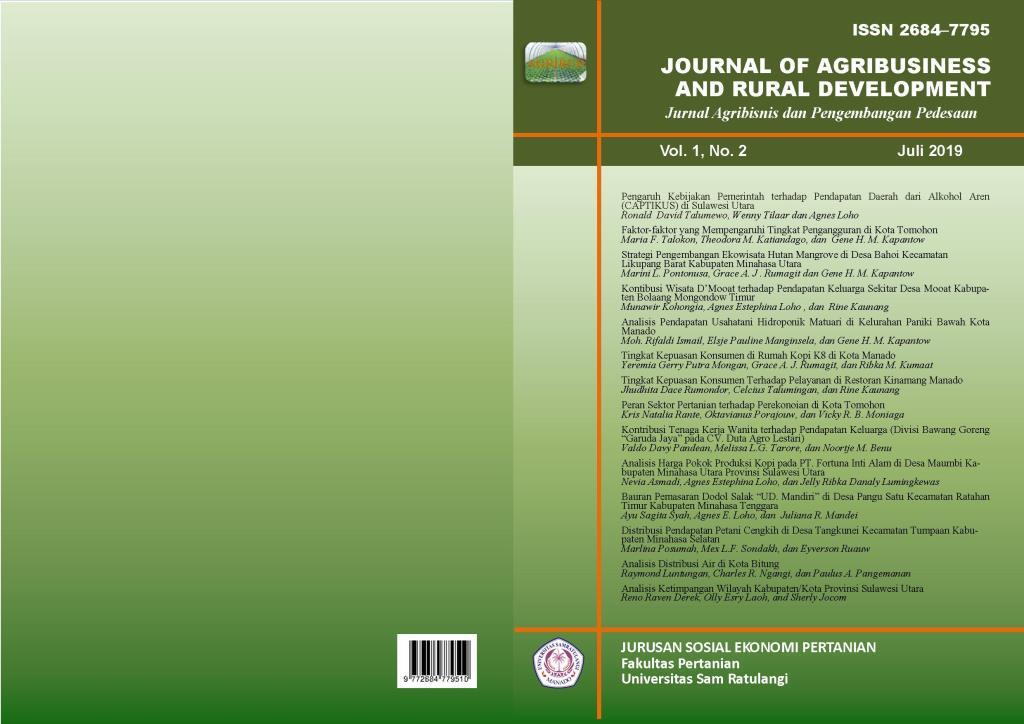STRATEGI PENGEMBANGAN EKOWISATA HUTAN MANGROVE DI DESA BAHOI KECAMATAN LIKUPANG BARAT KABUPATEN MINAHASA UTARA
DOI:
https://doi.org/10.35791/agrirud.v1i2.24455Abstract
The objective of this research was to study the Development Strategy of Mangrove Ecotourism in the Bahoi Village of Likupang West subdistrict, North Minahasa Regency. This research was conducted for three months from September to November 2018. The data used were primary data and secondary data. Primary data were obtained through direct observation in the field and direct interviews with 4 community leaders, 2 foreign tourists, 5 local people from the Bahoi village and 4 local tourists. Secondary data were obtained from the relevant agencies, namely the Office of the Bahoi Village. The results of the research showed that the SWOT diagram analysis in Bahoi Village was in quadrant I, which was in Aggressive stage. Therefore, Mangrove Forests should be continued to be developed and promoted as ecotourism destination.
Keywords: Developing Strategy, SWOT, Ecotourism, Mangrove Forest
References
Harahab, N. 2010. Penilaian Ekonomi Ekosistem Hutan Mangrove dan Ap-likasinya Dalam Perencanaan Wilaya Pesisir, Graha Ilmu, Yogyakarta..
Rangkuti, F. 2015. Analisis SWOT: Teknik Membedah Kasus Bisnis Cara Perhi-tungan Bobot, Rating, dan OCAI. Ja-karta: Penebit PT.Gramedia Pustaka Utama.






